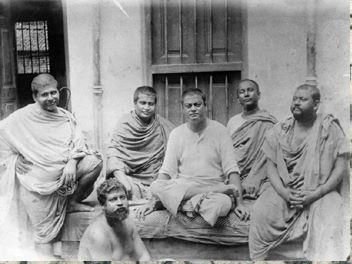Swami Vivekananda, a name that resonates with the spiritual and philosophical fabric of India, was more than just a monk. His life and teachings continue to inspire millions across the world. This blog post delves into the remarkable journey of Swami Vivekananda, exploring his early life, spiritual awakening, and lasting impact on society.
Early Life: The Birth of a Spiritual Giant
Birth and Family Background

Born as Narendranath Datta on January 12, 1863, in Kolkata, Swami Vivekananda hailed from an affluent and intellectual Bengali family. His father, Vishwanath Datta, was an attorney, while his mother, Bhuvaneshwari Devi, was a deeply religious woman who influenced his spiritual inclination from an early age.
Education and Quest for Truth
Narendranath was a bright and inquisitive student, excelling in academics and extracurricular activities. However, he was not content with mere bookish knowledge. He was in search of the deeper truths of life, a quest that led him to question everything, including the existence of God. This insatiable curiosity ultimately guided him toward his spiritual mentor, Ramakrishna Paramahamsa.
Meeting with Ramakrishna: The Turning Point
The Spiritual Transformation

In 1881, Narendranath met Ramakrishna at the Dakshineswar Kali Temple. This encounter was a turning point in his life. Ramakrishna’s simple yet profound teachings on spirituality, the unity of all religions, and the divinity of every human being deeply resonated with him. Under Ramakrishna’s guidance, Narendranath underwent a spiritual awakening and later took the monastic name, Swami Vivekananda.
Formation of the Ramakrishna Mission
After Ramakrishna died in 1886, Swami Vivekananda took up the mantle of his master’s mission. He and his fellow disciples established the Ramakrishna Mission, a spiritual and humanitarian organization dedicated to serving humanity and spreading the teachings of Vedanta.

Swami Vivekananda’s Historic Journey to the West
Chicago Address: A Global Spiritual Icon
Swami Vivekananda’s fame reached new heights when he represented Hinduism at the Parliament of the World’s Religions in Chicago in 1893. His opening words, “Sisters and Brothers of America,” resonated with the audience, and his eloquent speech on religious tolerance and universal brotherhood earned him a standing ovation. This event began his mission to introduce Vedanta and Yoga to the Western world.
Spreading the Message of Vedanta
For the next few years, Swami Vivekananda traveled extensively across the United States and Europe, delivering lectures on Vedanta, Indian philosophy, and the practical application of spirituality in daily life. He established Vedanta Societies in various cities, which continue to thrive today.

Social Reformer: Swami Vivekananda’s Vision for India
Champion of the Oppressed
Swami Vivekananda was not only a spiritual leader but also a social reformer who championed the cause of the poor and marginalized. He emphasized the need for education, self-reliance, and the upliftment of the masses. His famous quote, “Arise, awake, and stop not till the goal is reached,” became a rallying cry for India’s youth to take up the responsibility of nation-building.
Revival of Indian Culture and Spirituality
At a time when India was under British colonial rule and its cultural heritage was under threat, Swami Vivekananda worked tirelessly to revive the nation’s pride in its spiritual and cultural roots. He urged Indians to embrace their rich traditions while also adopting modern scientific and technological advancements.
Legacy and Influence: The Everlasting Impact of Swami Vivekananda
Inspiration for Future Generations
Swami Vivekananda’s teachings continue to inspire countless individuals across the world. His emphasis on self-realization, service to humanity, and the harmony of religions has influenced spiritual leaders, social reformers, and thinkers alike. The Ramakrishna Mission, which he founded, continues to serve humanity through education, healthcare, and spiritual guidance.
Commemorating Swami Vivekananda
In recognition of his immense contribution to society, January 12, his birthday, is celebrated as National Youth Day in India. His teachings are a source of inspiration for young minds, encouraging them to work for the betterment of society.
Conclusion: Swami Vivekananda – A Beacon of Light
Swami Vivekananda’s life was a testament to the power of spirituality, the strength of conviction, and the importance of serving humanity. His message of universal brotherhood and self-realization transcends time and continues to guide people on their spiritual journeys. As we reflect on his life, we are reminded of the potential within each of us to rise above our limitations and work toward the betterment of society and the world at large.




